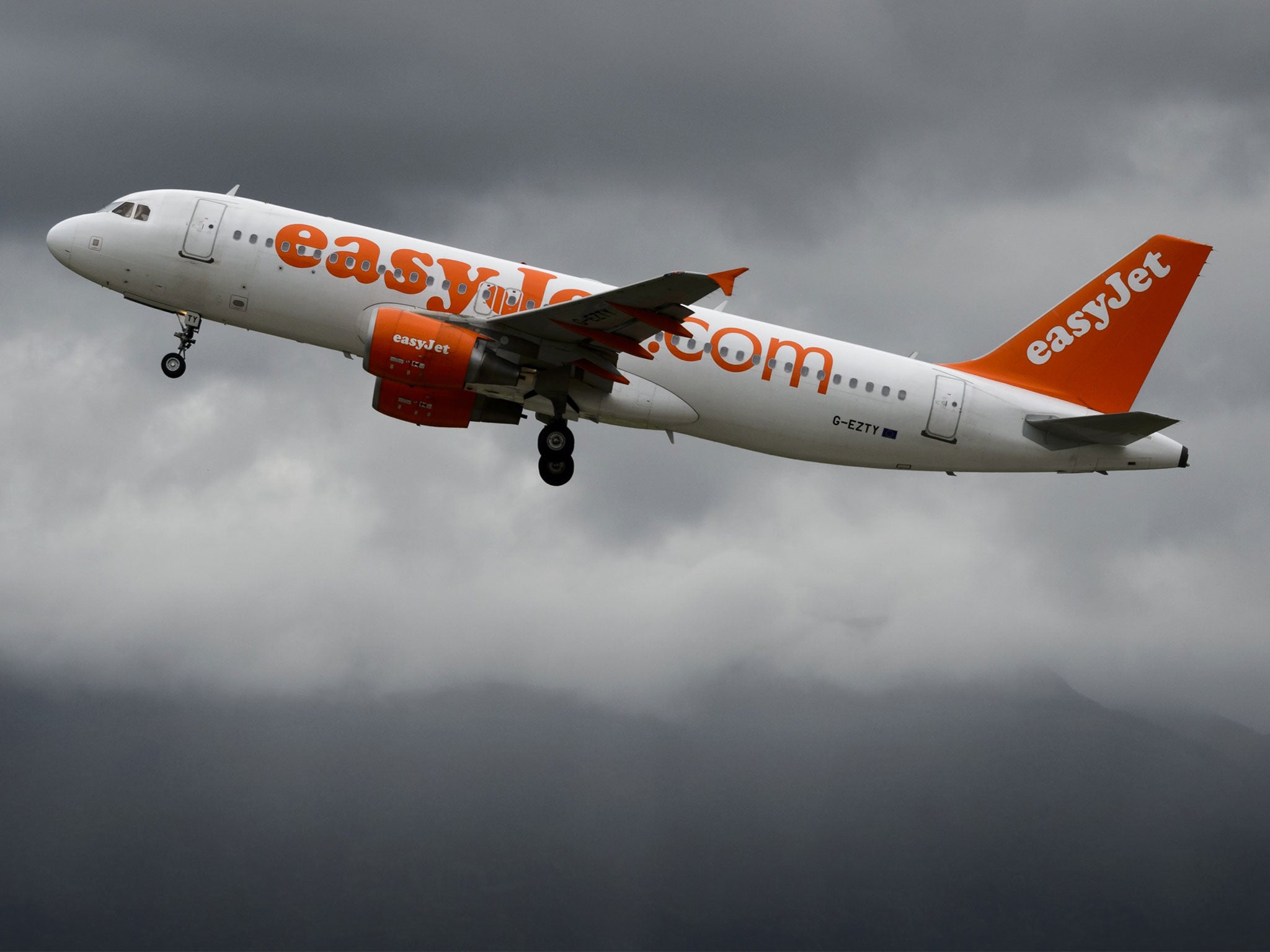EasyJet flight diversion: 'Terror threat' response shows the travel industry is deeply afraid
EasyJet’s knee-jerk reaction to a false alarm is telling

Your support helps us to tell the story
From reproductive rights to climate change to Big Tech, The Independent is on the ground when the story is developing. Whether it's investigating the financials of Elon Musk's pro-Trump PAC or producing our latest documentary, 'The A Word', which shines a light on the American women fighting for reproductive rights, we know how important it is to parse out the facts from the messaging.
At such a critical moment in US history, we need reporters on the ground. Your donation allows us to keep sending journalists to speak to both sides of the story.
The Independent is trusted by Americans across the entire political spectrum. And unlike many other quality news outlets, we choose not to lock Americans out of our reporting and analysis with paywalls. We believe quality journalism should be available to everyone, paid for by those who can afford it.
Your support makes all the difference.Few aviation-related activities are as much fun as using the emergency slides to exit an aircraft – so long as this happens on a training exercise, rather than in real life.
I have been lucky enough to take part in exercises at the training centres for both British Airways and easyJet. In my experience, with no high heels to remove, the most important aspect of the cabin-crew briefing is cross your arms. This helps to avoid the natural temptation to grab the sides of the slide, which will slow the procedure and could cause friction burns. The likelihood is you will arrived at the bottom with a gentle bump and a big smile.
Real life isn’t like that. On all the (thankfully rare) occasions when I have reported on emergency evacuations, a number of people always get hurt.
So it proved, unfortunately, last Saturday, when an easyJet plane flying from Ljubljana to Stansted suddenly diverted to Cologne. The captain ordered an emergency evacuation. Afterwards, according to the airport, “Nine passengers were given medical treatment”.
The reason for the extreme sequence of events: a fear that three terrorists had brought a bomb on board.
There were no terrorists, and there was no bomb. The three men were arrested, questioned and released without charge.
An explosion took place, but it was thankfully it was of the controlled variety, carried out by German police on a “suspicious” rucksack which turned out merely to contain leads and chargers for electronic gear.
The episode closed Cologne airport for several hours and wrecked the travel plans of more than 3,000 people. Besides the 151 passengers on board the easyJet plane, seven inbound flights were diverted to other airports, 20 departures were seriously delayed and two flights were cancelled altogether.
So what had happened to trigger this sequence of events? A spokesperson for easyJet tells me: “Security related concerns were raised over a conversation which had been heard.”
The captain was clearly alarmed by what he was told by the cabin crew, because he chose to take the extreme option of diverting to the nearest available airfield, and deploying the emergency slides to get everyone off the plane as fast as possible.
By about the time the plane should have landed at Stansted, the perceived danger had been averted, with police taking charge of the situation and arresting the three men. But it took another 19 hours before 148 of the passengers reached the Essex airport; the three “suspects” were flown home separately from Cologne at easyJet’s expense, presumably with the charred remains of their rucksack and technical gear.
A back-of-a-boarding-pass calculation suggests that the total bill for easyJet will have been around £50,000, including hotels and the cost of flying out a spare aircraft to retrieve the passengers. You can probably multiply that by about 10 to cover the other delays.
Of course, half a million pounds and a right old kerfuffle for thousands of people is nothing compared with the value of human life.
When I reported on the diversion, one reader commented: “I’d sooner be late, have a fuss with baggage, and know my family and I were safe.”
It would be most unfair to employ hindsight and suggest the captain was rash in commanding an immediate diversion and evacuation. Time was his enemy, not his friend. But the episode is troubling in terms of how it suggests the world of travel has become jittery. “An abundance of caution” is the term used in the US, whenever an airport is shut down because someone has seen something that alarms them.
Terrorists (the real kind, not the sort whose possibly careless talk cost them and everyone else a lot of time, and easyJet a lot of money), tend not to discuss bomb plots on board planes within earshot of other passengers. They may also take comfort from the ease with which a major airport was shut down, as evidence of the fear they have disseminated.
Perhaps passengers will be more guarded in what they say when others are eavesdropping on a plane. And perhaps crew, albeit in a stressful and difficult situation, will take a moment to ask a few more questions themselves before hitting the big red emergency button.
I side with Patrick Cockburn, who wrote in The Independent earlier this month: “The great majority of British people have as much idea about how to identify a potential terrorist as their ancestors 400 years ago did about detecting witches.”
Caution is an asset for everyone who travels, and works in the industry. But when overabundant, it can create its own hazards.
Join our commenting forum
Join thought-provoking conversations, follow other Independent readers and see their replies
Comments